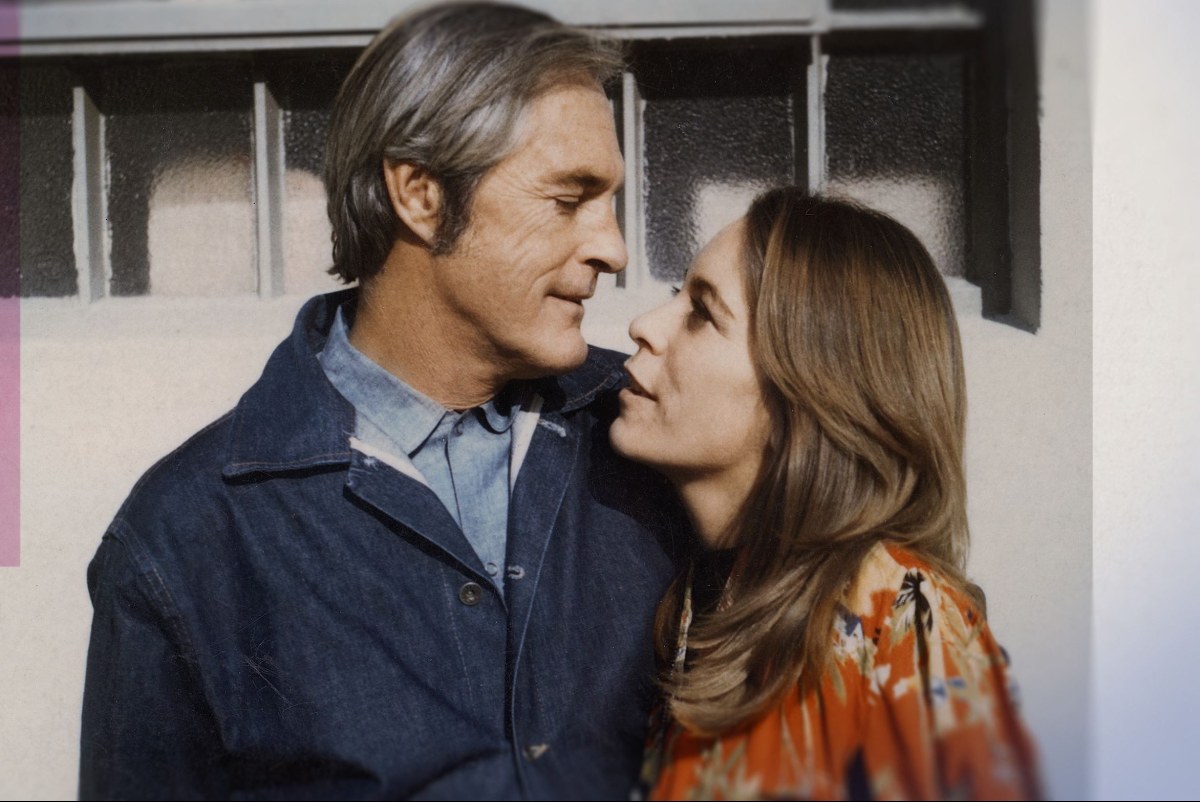From “The Fog of War” to “Tabloid“, to “Mr. Death,” and “American Dharma,” there are a few good reasons why many hail Errol Morris as the master of the one-on-one interview doc. Morris knows that the deepest stories can be found in human transgressions, these transgressions often being the outward manifestation of people’s darkest secrets and desires. His latest work, “My Psychedelic Love Story” wastes no time in plunging audiences into the blissfully messy, globe-trotting adventure of an ultimately doomed “shooting star romance,” one that occurred at the height of the sexual revolution, but, more so than that, his newest film is also a perturbed look at our government’s possibly calculated manipulation of these drug-crossed lovers relationship, in order to alter the direction of public consciousness regarding certain illicit substances, ones having an impact on a society on the cusp of change (or so we thought pre-2020).
“My Psychedelic Love Story,” recounts the kaleidoscopic experiences of Joanna Harcourt Smith, once a romantic partner to neuronaut/spiritual guru Timothy Leary, a pro-drug psychologist and best-selling writer who became a figure of major controversy during the counter-culture movement. Painted by many as “the man most responsible for the North American crisis over LSD,” Leary was seen by certain people, such as Richard Nixon’s administration, as an “ideological trafficker.” Years later, he turned federal informant after finding himself in and out of various prison facilities. Harcourt-Smith – who also wrote the autobiographical memoir “Tripping the Bardo with Timothy Leary: My Psychedelic Love Story” – was accused by those who once held the activist in high regard as a “sex spy,” an “agent provocateur.” Morris film takes a close look at precisely how and why she became assumed to be a Mata Hari-type figure, after Leary had been outed as a snitch.
Harcourt Smith did not become involved with the public figure until after his escape from prison in 1970. But how far back did the intrusion from the government really go? In many ways, there is no way to know. Only years later did Joanna realize she was likely deliberately steered into Leary’s life at a specific point in time, to assist the government with his eventual arrest and indictment. She was too young and impressionable to really know anything about the world, then, and even more ignorant of the extremity of the situation given all intoxicants at the center of it all. The doc also spends part of its duration exploring her earlier years, questioning what led her down this path to a romance rooted in drug culture. Her theory: it could all be traced back to her mother, a Polish Jew who escaped Europe after surviving two world wars, who would eventually treat her own daughter no different than Hitler might – Joanna even claiming her mother was the kind of woman who would brag at a cocktail party about making love to Mussolini
Flashing the names of places and players across the screen in fonts of various shapes, sizes, and color hues, the movie expectedly presents itself in a prismatic visual style – using snippets of different media coverage tinted like tie-dye negative footage at times. Overall, it’s perhaps more reigned and less anarchistic than one might expect from a movie dealing with this period, but the trippy aspects really aren’t Morris’ agenda, the willful and real human at its center is. Sadly, despite the rapid-fire fluidity of the film’s editing pace – the recounting of this acid-induced period expounded by pixelated cracks in the screen like a flickering paradox of motion – the narrative does become a bit clouded by repetition, as the film is lacking the audible poetry often evoked by the filmmaker’s usual musical collaborator, Philip Glass – whose symphonic synth-aesthetic would have lent itself consummately to doc’s narrative The music by composer Paul Leonard-Morgan has the flavor quality needed but lacks a sensory, mood-altering, oomph.
Ultimately, being framed around the sole interview subject’s recollections – in addition to some of Leary’s deposition tape recordings – Morris’ film reads as Harcourt-Smith’s story more than anything else, but (understandably) frequently grows more concerned with the angles that allowed federal agencies the ability to orchestrate their needs by maneuvering people like chess pieces in an explicitly massaged operation, one enacted to alter the thinking course of mass-cultural behavior. The ideological questions asked are, of course, all-too relevant, but posteriorly lacking the moral shock of something like last year’s “Cold Case Hammarskjöld” – a film circling an entirely different level of national conspiracy – the paranoid political intrigue aspects of Morris’ movie turn a tad rote compared to Joanna Harcourt-Smith’s absorbing personality and the romantically sensationalized idolatry of such a tempestuous figure. [B/B-]





